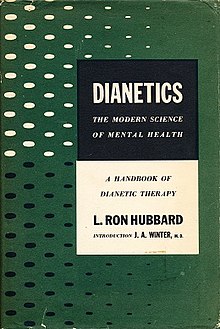Some Of Dianetics
Wiki Article
5 Easy Facts About Dianetics Explained
Table of Contents5 Easy Facts About Dianetics ExplainedDianetics for BeginnersIndicators on Dianetics You Need To KnowSome Of Dianetics
I could not ever not intend to obtain anything that enters your mind for you- if it was otherwise, I wouldn't be sitting here with you, doing this. I not only can never ever have a trouble, or otherwise wish to hear something that comes to mind for you, yet I'm completely eager to understand every concept, every thought, every image or feeling that arises or materializes for you- do not ever before assume or else, and if somehow you do, please simply allow me understand! Often, you might have an idea, and image, concept or occurrence turn up that does not appear to answer the inquiry, or associate to it, however nevertheless, constantly do tell me about it, and as we continue, the importance will certainly arise for you.This is integral in the basis of handling, and the subject of this discussion: the fundamental roles of the therapist and the client: The standard role of the counselor is, contrary to "basic training", not to regulate, which implies to impose and/or hinder, however to rather work from the basis of EMPOWERING THE CLIENT.

Not known Factual Statements About Dianetics
John Mcmasters revealed this fundamental reality incredibly well in one of his lectures on Power processing, wherein he clarifies just how he was asked what this "unique propensity" was that he had for offering such terrific sessions; he had to assume regarding that for a minute, and spotted that it was what he wasn't doing, along with what he was doing: he wasn't reviewing, judging, computer, or as a matter of fact, producing any kind of thoughts, not to mention spoken expressions, after providing the command and while awaiting the computer to complete their response to their fulfillment; he was, simply and just, being existing with the PC, and completely interested.The duty of the therapist, showed; that was his "unique knack". I have actually had my own experience which taught me this well, extremely early on in the game. In 1982, having actually recently finished my training and teaching fellowship on New Period Dianetics, I was running this on a PC, and there was a factor in the session where (being a little bit wet behind the ears not yet having lots of hours under my belt as an expert auditor) the PC seemed to be "taking also lengthy" to express anything verbally after I provided him a command.
This key ended up being one of the most important payment that John ever made to the subject of therapy or bookkeeping (Dianetics). In my simple viewpoint, it is the best contribution that any individual has ever made to these subjectsthe application is totally non-judgemental, non-evaluative, and without any kind of idea, suggestions or opinion.no preconceived program for individuals, or 'levels' that they should do
In Idenics, the only source of information about a customer is the individual client. In Scientology we prided ourselves on not assessing for individuals. However all that actually indicated was that the auditor did not vocally examine for the PC in session. The registrars and values police officers reviewed for the computer.
Some Ideas on Dianetics You Need To Know

Anybody who had actually ever seen John audit might not assist however notice an one-of-a-kind top quality in his bookkeeping."The customer's basic duty is to be there with the function of moving in the instructions of their spiritual goals, and to freely and totally express and experience whatever materializes for them in answering the questions and performing the guidelines in the handling.
This is find something to procedure as required. Also, individuals frequently have previous experience and/or brainwashing website link in auditing/processing which, in some means, and to some degrees, actually misdirects them into perspectives, concepts and actions patterns that prevent the full awareness of these duties, and so they will certainly tend to hinder the expressing of what comes to mind, as in the examples given above - Dianetics. * The very first, and probably foremost examples of mis-indoctrination causing much less than completely smooth and effective sessions, can be discovered in particular facets of the training regimens, or "TR's":"TR's" are typically an individual's first, or at the very least early, experience in Scientology, and while I will certainly take place to discuss what I view as the defects in idea and practice, however, have a tendency to be considerably healing, done as they are given (Hubbard urges that "TR's are not refining, they are training", yet factually, they are both processing AND training)
There is no "failing", and no denial of the reality of this being handling. The focus, as it needs to be, is on experiencing the various other person's presence.
Dianetics - The Facts

Report this wiki page